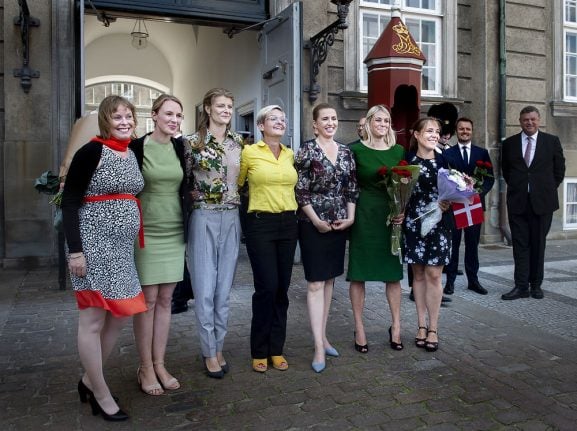Named by 41-year-old prime minister Frederiksen on Thursday, the average age of all new ministers is 41.8.
The oldest minister is Mogens Jensen, 55, who has been given the portfolio of Food, Fisheries and Equality. The youngest team member is 33-year-old Simon Kollerup, the new business minister.
After the 2015 election, the government named by former PM Lars Løkke Rasmussen had an average age of 50, while the government formed by Helle Thorning-Schmidt in 2011 had an average age of 42.8, Jyllands-Posten reports.
Frederiksen herself is Denmark’s youngest prime minister since the country switched to a democratic system of government in 1848-49.
“By giving important ministerial posts to (immigration minister) Mattias Tesfaye, (social and interior minister) Astrid Kragh and (climate and energy minister) Dan Jørgensen, (Frederiksen) is showing she values the younger forces which have characterized the party with her as leader,” Aalborg University election researcher Johannes Andersen told Fagbladet 3F.
But Frederiksen was also criticized for giving only 7 of the 20 ministerial posts, or 35 percent, to women.
That compares to 40 percent in the coalition put together by Rasmussen in November 2016 and 29 percent after the 2015 election. When Rasmussen first formed a government in 2010, 47 percent of his ministers were women, Politiken writes.
In the most recent Social Democrat-led government, Thorning-Schmidt’s from a 2014 reshuffle, 40 percent of ministers were women.
Pia Olsen Dyhr, leader of the Socialist People’s Party (SF), one of three left-wing parties who agreed the basis for the new government with Frederiksen earlier this week, expressed her disappointment with the ministerial gender distribution.
“A shame to see a share of just 35 percent women in the new government! But positive to have a female prime minister,” Dyhr tweeted.
READ ALSO:



 Please whitelist us to continue reading.
Please whitelist us to continue reading.
Member comments